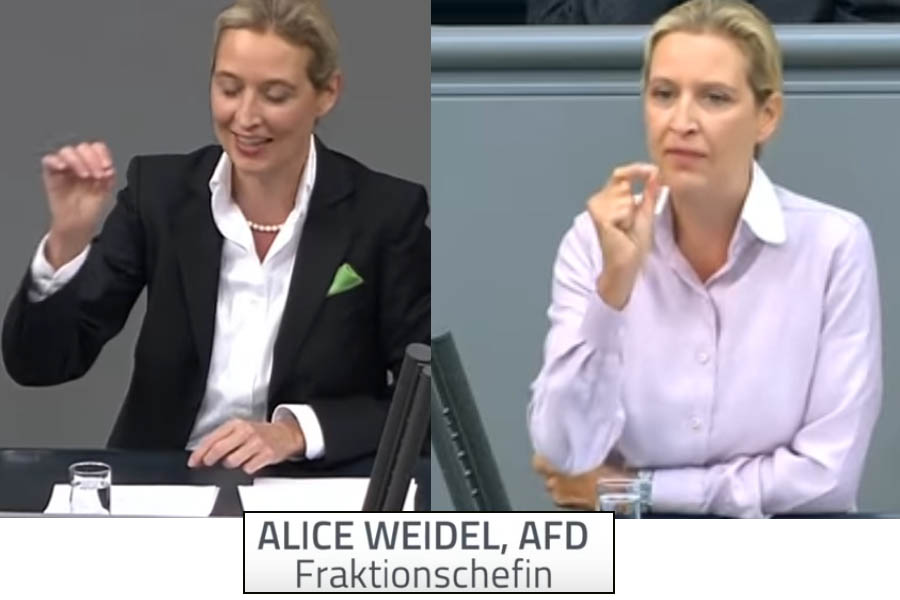
Alice Weidel, co-leader of Germany's hard-right Alternative for Germany (AfD) party, stands as a formidable figure in German politics. Against the backdrop of Berlin's rich tapestry of historic sites such as Tiergarten, she navigates the cultural essence and future aspirations of Germany, steering towards a vision of improvement for the nation. Despite the party's controversial stance on immigration and its extreme right-wing positions, Weidel's influence has been steadily rising, making the AfD Germany's second most popular party. In this article, we explore the paradox of Weidel's leadership, the party's growth, and the factors contributing to its appeal among German voters.
Weidel's Rise to Prominence:
With her regal bearing, Weidel, at 44, may seem an unlikely figurehead for the AfD, a party traditionally dominated by men from eastern Germany. However, her well-to-do background, a Ph.D. in economics, and a successful career in finance set her apart. Having worked for global entities like Goldman Sachs and Allianz, Weidel's journey into politics was fueled by her admiration for the AfD's anti-euro stance. Her trajectory, marked by controlled boardrooms and studios rather than raucous crowds, showcases her distinctive leadership style.
A Paradoxical Figurehead:
Weidel's personal life adds another layer to her paradoxical leadership. Openly gay, she resides primarily in Switzerland with her Swiss filmmaker partner, raising two sons. Despite her atypical background, Weidel has become a symbol for the AfD's anti-immigration stance and nationalist rhetoric, resonating with a growing number of Germans.
Immigration as the Central Issue:
Weidel's narrative attributes Germany's challenges to what she deems irresponsible immigration policies, particularly those of former Chancellor Angela Merkel. According to Weidel, the influx of refugees and migrants has led to increased crime rates and negatively impacted the country's education system. However, statistical data suggests a different story, with crime rates decreasing from 2016-2021 and Germany ranking averagely in European safety rankings.
Playing to the Base:
Weidel's mix of claims of persecution, alarmism, and insinuations against immigration aligns with the AfD's base. Despite evidence to the contrary, her nationalist rhetoric finds resonance, even prompting shifts within established parties like the Christian Democratic Union, which recently revised its manifesto to emphasize shared values with Muslims rather than inclusivity.
As the AfD gains ground, particularly in the upcoming European Parliament elections and regional polls in Brandenburg, Saxony, and Thuringia, the party may wield significant influence by the 2025 Bundestag elections. Weidel and her co-leader, Tino Chrupalla, could become kingmakers, ushering in a new era of right-wing populism in German politics.
Alice Weidel's paradoxical leadership and the AfD's rising popularity underscore the evolving political landscape in Germany. Despite facing official surveillance and media scrutiny, the party continues to gain traction by tapping into anti-immigrant sentiments. As the AfD positions itself as a major political force, its impact on German politics and policies remains a subject of growing concern and debate.